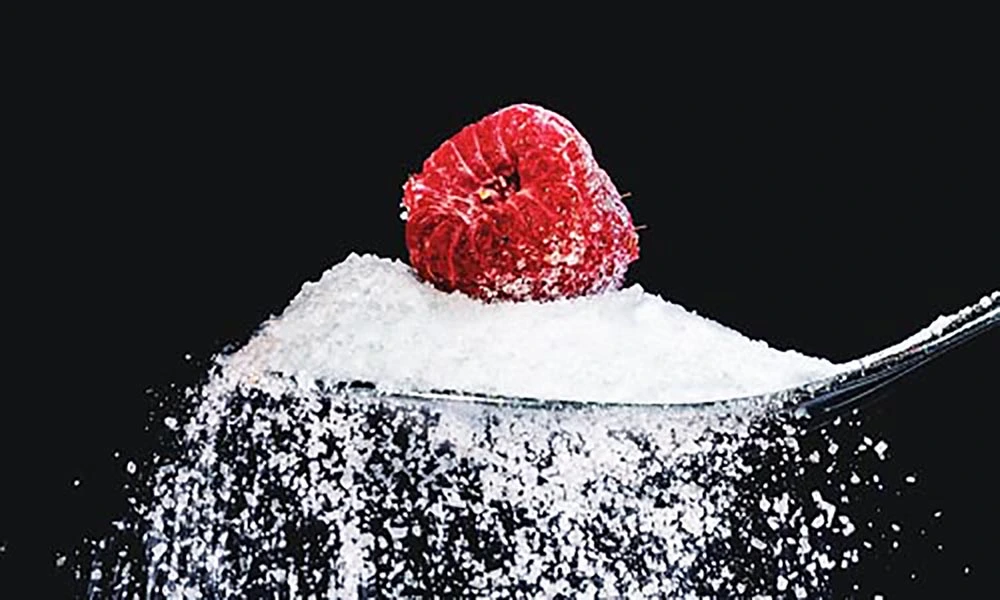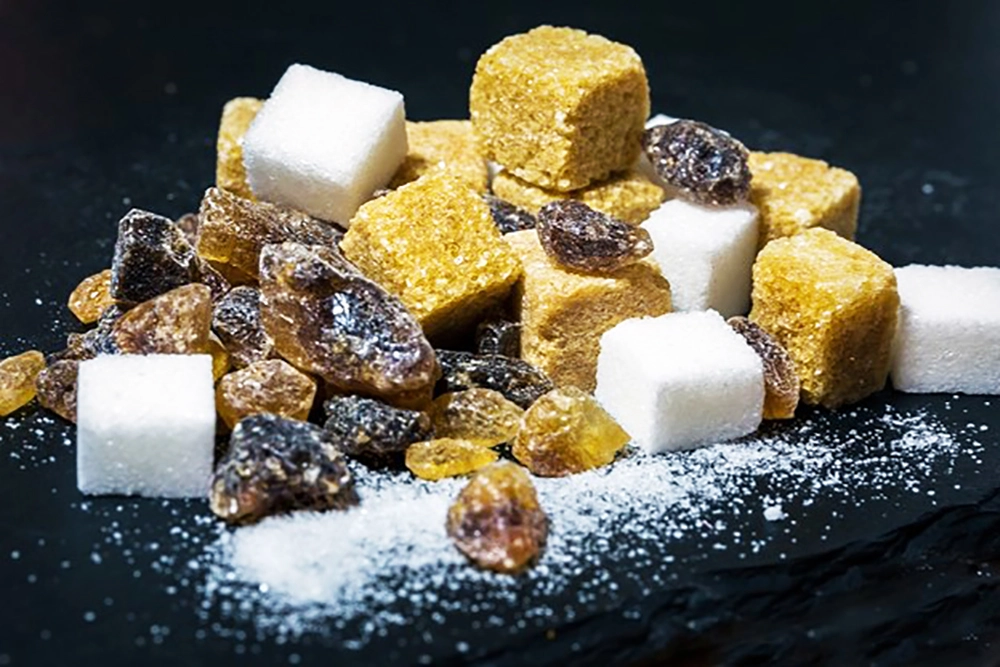How fake sugars sneak into foods and disrupt metabolic health. Artificial sweetener, which is another name for fake sugar. Can get into food in a lot of options.
Many of the time, food companies don’t add extra calories. Used in place of sugar to make things sweeter. Artificial sugars like aspartame are very common. Stephalia, saccharin, and sucralose are these.
There are several ways that substances hurt digestive health. First, the normal ways that our bodies control hunger and fullness. May be confusing, which makes you hungrier. Second, some research has shown that people may be eating too much.
Maintains health and digestion. Even though fake sugars don’t have any calories, they make people less sensitive to taste. In turn, this makes people want sweet foods. Might eat more calories.
A few studies have found a link between fake sweets and diabetes and insulin resistance. These links have been linked to metabolic diseases, though. More research needs to be done to fully understand.
False sugars mess with your gut bacteria, hunger cues, taste habits, and potential. Changing metabolic state hurts metabolic health.
How fake sugars sneak into foods and disrupt metabolic health

On how fake sugars get into foods and mess up your metabolism. A different name for fake sugars is artificial sweeteners. are man-made things that get attention. It makes foods and drinks taste sweet without adding calories.
Made to taste a lot sweeter than natural sugars. Allows using less while still getting the sweetness amount you want. Artificial sugars like aspartame, sucralose, saccharin, and stevia are very common.
One of the most common fake sweets, aspartame, has two amino acids in it. It is made up of acids and is about 200 times sweeter than sucrose, which is what table sugar is. It comes from sucrose and is about 600 times more common than sugar.
Added sugar and often found in “diet” or “sugar-free” foods. The oldest man-made sweetener, saccharin, is about 300 times stronger than sugar. Usually found in drinks and treats that you serve at a table.
The Stevia Rebaudiana plant gives us stevia, a natural sweetness. Instead of artificial sugars, plant-based sources are becoming more and more common.
When it comes to metabolic health, artificial sweeteners are sweet without the calories that come from sugar. A lot of study and discussion is still going on about the effects.
Fake sugar lurking in food:

Use as a sugar substitute by food manufacturers:
Manufacturers of food add more sweetness without adding more calories. Artificial sweets are used instead of sugar. Most of the time, alternatives to natural sugar are better and cheaper.
This makes it a good choice for mass production. added to a lot of different prepared foods. It cuts down on the sugar while keeping the taste the same.
Presence in Low-Sugar or “Diet” Products:
A lot of low-sugar or diet foods contain artificial sugars. Consumers who care about their health want to cut down on the amount of sugar they eat.
Even though these goods have very little sugar in them. Usually has a lot of fake sugar in it. are even sweeter than the sugary ones.
Processed foods, beverages, and condiments in disguise:
Foods that have been treated and given new names or E-numbers are artificial sweeteners. Can be hidden in spices and drinks. You can list these as individual names. like aspartame or sucralose, or just to make things taste better.
This mask is meant to help people spot fake sweets. Careless use is what makes avoiding hard. It plays a part in possible biochemical processes
Disorders of Metabolic Health:

Confusion of hunger and satiety signals:
Artificial sugars work with your body’s natural systems to control your hunger and fullness. Could mess up processes that make you hungry.
It is used up too quickly. Even though it has sugar substitutes that don’t have any calories, it doesn’t satisfy hunger cues.
Changes in intestinal bacterial composition:
Studies show that fake sweeteners may kill bacteria in the gut. Can change the make-up of what is called the microbiome. This change in gut bacteria is physiological. Obesity can hurt your health. makes metabolic diseases like insulin resistance more likely to happen.
Taste receptor sensitivity:
Artificial sweets are very sweet, and over time, they can make taste buds more sensitive. Because of this, some people may start to like sweet foods more. Because of this, there is more sugar and calories. Can hurt your digestive health.
Links to metabolic conditions:
Research on sugar substitutes, insulin resistance, and blood sugar. It has been shown that metabolic problems like sensitivity may be linked.
To fully understand the links, more study is required. More and more proof points to fake sweeteners. Too much eating can make metabolic diseases more likely to happen.
Finally,
How fake sugars sneak into foods and disrupt metabolic health. In a number of ways, fake sugar or chemical sweets hurt metabolic health. messes up cues for hunger and fullness, which makes you hungrier.
Possible eating too much. Artificial sugars are also used. changes the make-up of the bacteria in the intestines. Could change digestion and lead to obesity. The strong sweetness of options can make the taster more sensitive. Could make you want sweet things more.
Could make the sugar level higher. Like sugar substitutes, insulin resistance, and glucose sensitivity. Several biochemical diseases are linked to each other. To explain, we need to do more study.
Call for more research and awareness:
Given that manufactured sugar might have an effect on metabolic health. In order to learn more about the long-term effects. Research is really needed.
How people feel about fake sweets being in food and how they affect them. It’s important to raise knowledge. People make smart food choices when they are aware of the options. Can push for labelling methods that are clear. Might be good for your digestive health and well-being.
FAQ:
Q: Are Artificial Sweeteners Messing Up Your Metabolism?
A: Researchers and politicians are still arguing and researching how fake sweeteners affect digestion. Some tests show that sugar is sweet without being high in calories. Using fake sugar can mess up the way your metabolism works.
There is evidence that they may mix up cues for hunger. makes you thirstier and makes you eat too much. Artificial sweeteners can change the bacteria that lives in your gut. Could change digestion and lead to obesity.
Q: Is artificial sweetener consumption linked to weight gain and metabolic disease?
A: The link between consumption of artificial sweeteners and weight gain. or metabolic disease is uncertain. Some studies suggest a connection between them. Others find no significant correlation. Individual metabolism, diet, and lifestyle factors play an important role.
Q: Why are artificial sweeteners not good for those trying to reduce sugar consumption?
A: People who eat a lot of sugar might not do well with artificial sweets. Try to cut down on them because they can make you want sweet foods even more. Might not help you eat fewer calories.
Can make taste sensors more sensitive. Lessens the pleasure of sweet foods. In the long run, this makes people eat more sugar. Eating in moderation and being aware of what you’re eating are important for keeping your metabolism healthy.

